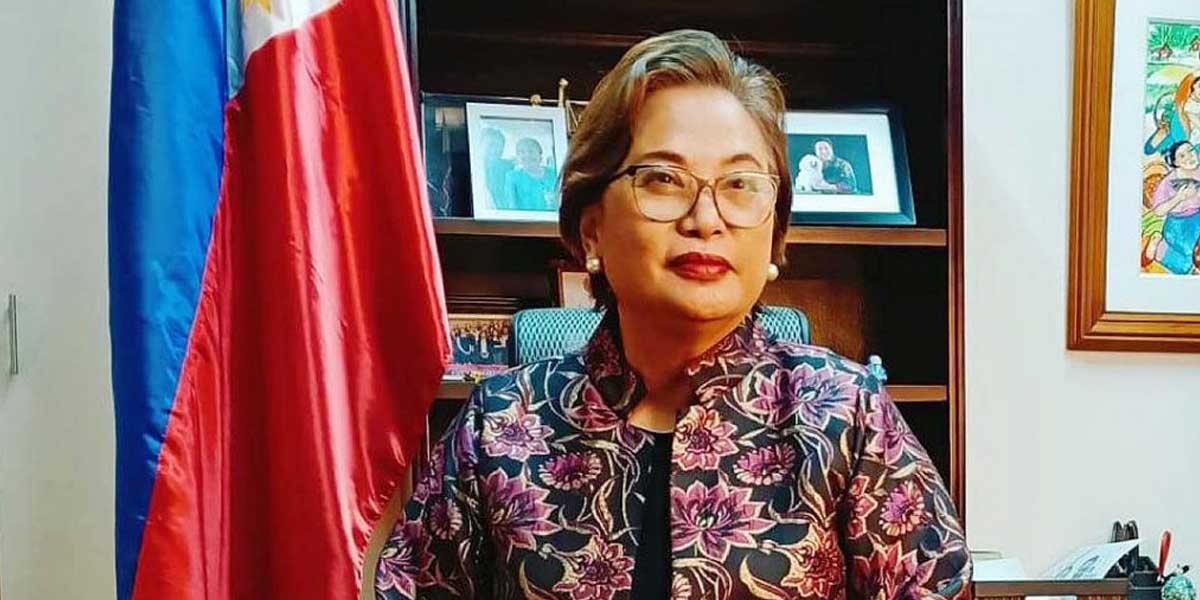
By Joseph B.A. Marzan
Former Commission on Elections (COMELEC) Commissioner Rowena Guanzon on Monday warned that the May 9, 2022 election is all about the Philippine economy.
At a press conference in Iloilo City on Monday evening with the International Women’s Day on March 8 as context, Guanzon said poor women suffered the most in the coronavirus disease 2019 (COVID-19) pandemic.
“This election is really important to our women, because our women are the ones who are taking care of many of us. They are still the ones who are worst hit, especially when it comes to budgeting food and care for the children. I’m talking about poor women, and they are mostly the ones without jobs compared to the men,” Guanzon said.
She then cited American political consultant James Carville’s 1992 quote, “(It’s) The economy, stupid!” in criticizing the economic platforms of a presidential candidate.
She said that the presidential bet, who met with Chinese diplomats prior to the declaration of his candidacy, would favor importing food from China, which would be detrimental to the country including Iloilo and Panay Island.
“Ferdinand Marcos [Jr.] wants to import food from China, he says it’s cheaper to import than to produce rice. So, what’s going to happen to Panay Island? What’s going to happen to Iloilo? Instead of subsidizing the agriculture industry to be able to recover after the pandemic, Marcos wants to just import rice, corn, and fish. We can even import fish, why? Because they’re already fishing in our exclusive economic zone,” she said.
As to her choice of presidential candidate, she only said “anyone but [Ferdinand Jr.] Marcos,” but also hinted that she is leaning towards either Vice President Leni Robredo or Senator Manny Pacquiao.
“Did you listen to [Robredo] in the debate? Foreign debt is different from national debt! [Robredo] was the only one who could see the difference because she’s also a graduate of the UP School of Economics,” she said.
But Atty. Vic Rodriguez, Marcos Jr.’s spokesman, earlier said that among the presidential bet’s plans if elected president include continuing and even enhancing the current administration’s “Build, Build, Build” program.
“Through the Build, Build, Build program we should be creating more jobs for our people. We should create a more conducive business climate, there should be certainty and adherence of government to long-term contracts with the private sector so we may attract more investors to place their capital in Public-Private Partnership programs, again it would mean more job opportunities for Filipinos,” Rodriguez said.
Marcos Jr.’s spokesman also reiterated the need to strengthen the agriculture and transportation industries.
“The UniTeam has many more in store to ensure economic recovery, like the strengthening the small and medium scale enterprises, during and beyond the pandemic, and these plans, deemed doable and realizable, only because they are anchored in national unity,” Rodriguez said.
Guanzon traveled to Iloilo after a 3-day stint in neighboring Capiz province to campaign for P3PWD, a party-list of persons with disabilities (PWDs).
If elected, the party-list would be the first representation of PWDs in Congress, and would aim to pass legislation targeting the rights, benefits, and livelihoods of their sector and of senior citizens who are already home-bound or disabled.
These include the improvement of the healthcare system and increasing discounts for medicines and hospitalizations of PWDs of all ages, requiring all government entities to allocate at least 5 percent of their total budget to PWD concerns such as social pensions, medical and hospitalization assistance, and livelihood capital and skills training, and secured or increased funding for special schools for children with disabilities.
She cited her support for PWDs since her retirement, including raising funds for children with cerebral palsy and donations of wheelchairs, pediatric canes, and walkers to the Children’s Medical Center in Quezon City in the past 6 years.
“Of all the sectors that are marginalized, the [PWDs] are worst hit during the [COVID] pandemic, because many [PWDs] are very poor. Because of the pandemic, they could not make a living, many of them had to make a living where they don’t have to move around. Many of them are vendors, but because of the pandemic, they suffered, and it’s heart-breaking,” she said.



















